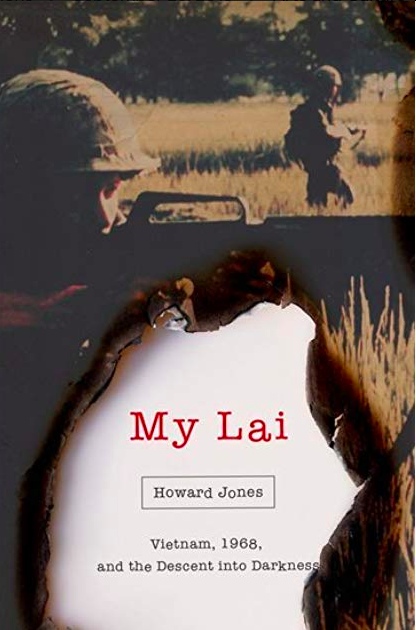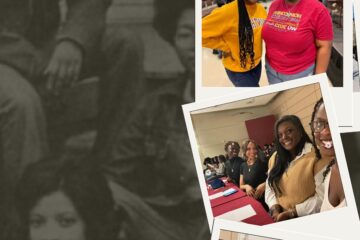In 1981, the United Nations established The International Day of Peace to be celebrated annually on Sept. 21. World Peace Day, as it is also known, is dedicated to “commemorating and strengthening the ideals of peace both within and among all nations and peoples.” Each year, Winthrop celebrates this day through multiple events across campus. This year in one of those events, Winthrop hosted prolific scholar and historian, Dr. Howard Jones. He was invited to speak on the topic of his recently published book “My Lai: Vietnam, 1968, and the Descent Into Darkness.”
“I am a firm believer that if you have something horrible that happened in your history confront it,” Jones said. “And confronting My Lai was a horrifying experience.”
What is now known as the My Lai Massacre refers to the event on March 16, 1968 where a group of American soldiers killed 504 unarmed elderly men, women and children thereby essentially wiping out an entire Vietnamese village. Jones was impressed by the amount of source material he could find on the topic. Many of the soldiers involved were interviewed about the events at several stages in their lives.
“When they were first interviewed after the events, they were caught up probably in the emotions of the time and they were more outspoken and willing to say ‘I saw such and such.’” Jones said. “Then later I think they got away from it and it was just ‘I dont wanna talk about it anymore.’”
Jones began researching this story nine years ago, and published this book just in time for the 50th anniversary of this event.
“When I signed a contract with Oxford, I was to deliver the manuscript in three years, and I started getting into the material, it really did take six more years after that,” Jones said. “It was that kind of topic.”
In addition to being a now retired history professor at the University of Alabama, Jones has published an extensive collection of books covering important and often difficult moments in American history. Most notably, in 1987 he published “Mutiny on the Amistad: The Saga of a Slave Revolt and Its Impact on American Abolition, Law, and Diplomacy,” which was the key source material for Steven Spielberg’s 1997 film “Amistad.”
Many of Jones’ books including “My Lai” are written in a narrative style as he is a “firm believer in narrative history.” Jones sees history as being filled with just as many interesting characters as any other story.
“I knew from the books I had read and assigned in class that every author seemed to have an agenda on who they were trying to blame,” Jones said. “I wanted to do a straight narrative, tell the story, and analyze as I go along, try not to reveal a viewpoint, but just present the story and let people make up their own minds.”
The students and professors in attendance each had their own reasons for learning more on the topic. For freshman student, Crystal Vue, she had a very personal interest.
“During the war, when my parents were younger, they had to run away into the woods for safety even though they weren’t living in Vietnam, the war wasn’t just in Vietnam,” Vue said.
Jones made it very clear in his lecture that there was not just one or two sides to this story but a million different shades. This resonated with Vue who left the event understanding how both major sides were struggling and hurting and just looking for a solution.
“I feel like peace is something that we all need and we just need more love and it’s really nice to try and get an understanding of both sides,” Vue said. “It makes me wonder what if there was a better way and so many people didn’t have to get hurt.”
One of the organizers of the event was the director of the Coalition for Peace, Justice, and Conflict Resolution and Winthrop professor, Dr. Ginger Williams. She believed this event was important for exploring peace despite being about a completely unpeaceful event.
“To come to peace you have to do a lot of hard work and that means confronting ourselves, and confronting our actions, and confronting our history and confronting our nation,” Williams said. “We can’t just hold hands and sing kumbaya.”
With now half a century between the present and the horrible events of the past, Jones posits that we must continue to critically examine ourselves.
“It was a horrible thing and American boys did those horrid things in the heat of a war,” Jones said. “The best way you can get past a period that is horrible is to face it, to confront it, and to read all you can and learn all you can about it, so maybe you can come to understand it.”




